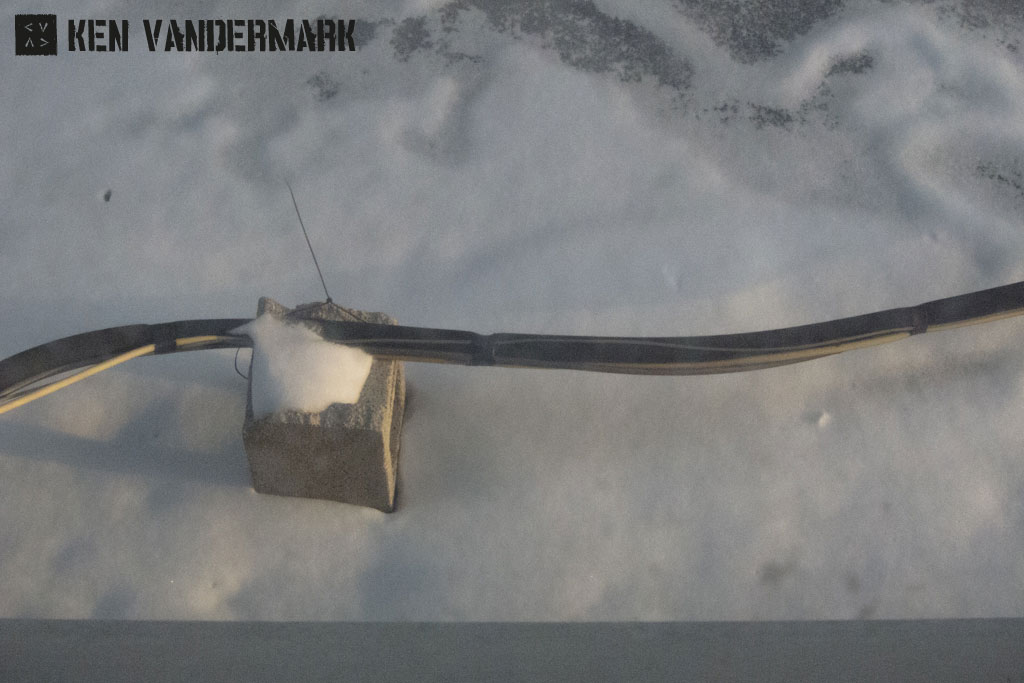

Listen to the mixture of groove, invention and chaos that erupts throughout two new recordings by Audio One and you might surmise this jazz collective favors music of the moment.
But the twist with this mammoth 10-member troupe is that the spark igniting the immediacy of its music today was first summoned for largely the same purpose by an entirely different jazz generation. It is to that jazz past — specifically, one led by the early 1970s players from Chicago’s AACM (the Association for the Advancement of Creative Musicians) and the St. Louis-based Black Artists Group — that Audio One founder and saxophonist Ken Vandermark looked to for his band’s newest sounds.
“I’ve been interested in composers who came out of the Midwest, especially those associated with the AACM and the Black Artists Group just as I’ve been really interested in writing music for larger groups of improvisers,” Vandermark says. “So I thought, ‘Okay, what I could do is maybe get a large group of people together and I could write arrangements of pieces by some of those great composers — namely, Julius Hemphill, Anthony Braxton, Roscoe Mitchell and Henry Threadgill.”
Enter the first of Audio One’s new records, The Midwest School, named after the blanket term given to Hemphill and his contemporaries. While their compositions make up the recording, Vandermark has set them to arrangements for a significantly larger band.
“If I was in a combo, I would think, ‘Why touch this music? What am I going to add to it?'” he says. “But with a 10-piece group, I could change the color and the trajectory of the piece.
“So when doing arrangements of other people’s work, I’m always focused on pieces I find extremely interesting and provocative for the content that’s in them. But I also try to look at them as objects that can be deconstructed, rethought and reinterpreted by a totally different group of improvisers. If the piece provides that kind of stimulus, then it’s really exciting to do it. Otherwise, the music should be left alone. There is no point in doing a piece just to do a piece. It needs to be a new interpretation or a new viewpoint.”
Audio One is, in essence, a new generation Midwest School. Its players are members of a fruitful Chicago indie jazz and improvisational music community of which Vandermark has long been an especially visible and proficient leader. That scene has also been steadily sending artists to Lexington venues as part of the Outside the Spotlight series. Over the past 12 years, seven of Audio One’s 10 members have led or co-led concerts here.
That leads us to the band’s second new album, An International Report. Recorded during the same winter concerts as The Midwest School, this set is devoted to Vandermark’s original compositions.
“I work with music that’s challenging,” Vandermark says. “But the preconception a lot of people have about that is, ‘Oh man, it’s going to be really difficult.’ They become disinterested or intimidated before they even hear the stuff. I think this period in the ’70s based in the Midwest that I’m so interested about … these are a bunch of composers that utilized everything they wanted to if it created something interesting in the improvising.
“The clashes and contrasts within their music, often in the same piece, completely fascinate me, so I use that methodology in my own work. I’m always trying to express that when I talk to people — that if you get in the room, you’re going to have a real experience. And it’s not going to be like a lecture or didactic sermon. It’s going to be, ‘Let’s find out what we’re going to discover with the music tonight.'”
By Walter Tunis
Originally Posted August 16th 2014 to: http://www.kentucky.com/2014/08/16/3383307/audio-one-brings-slice-of-chicago.html?sp=/99/684/#storylink=cpy
© 2024 Ken Vandermark – musician & composer | Disclaimer